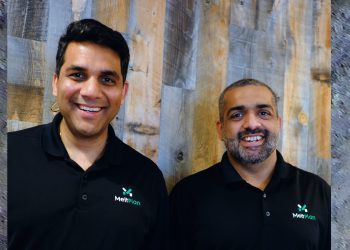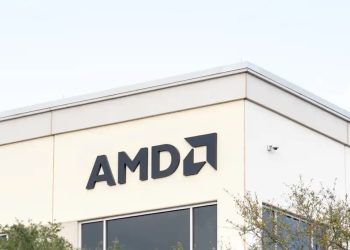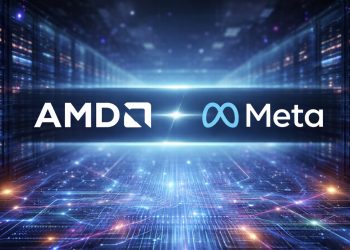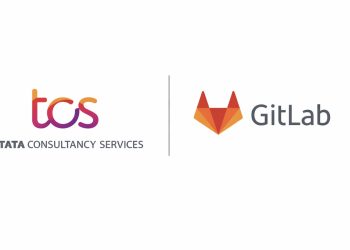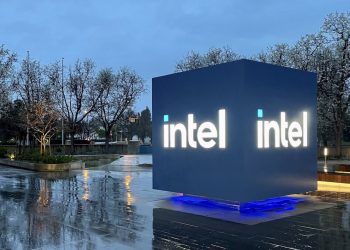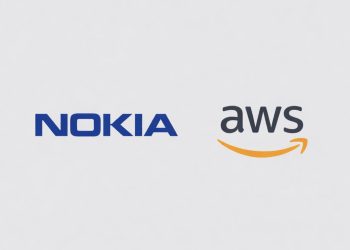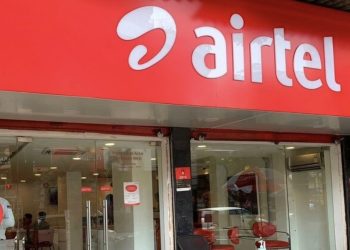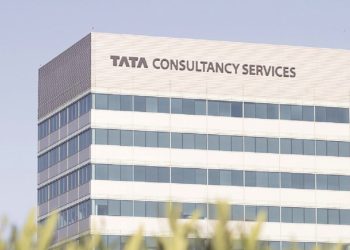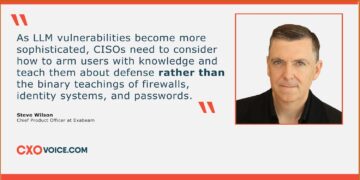In this exclusive email interview with CXO Voice, Jagat Shah, Chairman and CEO of MITSUMI distribution, discusses the evolving landscape of IT distribution and how the company is enabling digital transformation in some of the world’s fastest-growing regions. With operations spanning Africa, the Middle East, and beyond, MITSUMI has established itself as a trusted partner for global technology brands.
Jagat Shah shares his thoughts on the future of IT distribution, the role of data and AI in logistics, and the company’s strategies for creating value and staying ahead in an increasingly competitive global market.
Question: What inspired you to start MITSUMI Distribution, and how has the journey evolved since its inception?
Our journey began in 1998 in Kenya, when my brother Mitesh and I started Mitsumi Computer Garage Ltd., originally as a local computer reseller. We were a first-generation Indian family witnessing how access to technology was rapidly transforming lives in Africa.
We quickly recognized the opportunity to bridge the distribution gap between global tech manufacturers and emerging markets. That vision, combined with our hands-on approach, enabled us to expand to Dubai in 2003 and scale across the MEA region and beyond.
Today, MITSUMI Distribution is a trusted regional leader with over 45 global brand partnerships. We’ve evolved from hardware resellers into a full-spectrum technology distributor — offering everything from volume products (like PCs and accessories) to high-value solutions in cloud, cybersecurity, networking, AI, and enterprise technology.
Question: Over the years, how has MITSUMI expanded its operations, and what strategies have been most effective in entering new markets?
Our primary strategy is to be both adaptive and culturally sensitive to the markets we tap into as well as keeping our vision steady and based on keeping up with the industry’s advancements.
We’ve had a clear vision: to become an enabler of technology for our clients so that we could mutually advance to the next level. We’ve had a localized approach, by selecting working capital strategies and placing the best of local talent in leadership roles. We place great emphasis on learning quickly, such as when we entered Francophone West Africa, onboarding native French speaking staff and support teams for a higher degree of service to our customers.
Respecting cultural nuances always, we have now established regional headquarters in multiple countries. It is our deliberate strategies focused on advancement that have allowed us to build economies that quickly scale, while providing a localized approach when it comes to consumer relationship building.
Question: From your perspective, how is the global IT Tech industry evolving, and what implications does this have for IT distribution companies?
The global IT industry is experiencing a paradigm shift that brings with it complex challenges. And challenges are always opportunities as well. The industry is undergoing major changes, with cloud computing, AI and automation at the center of it. Machine learning and advanced analytics can now transform the way we view the distribution sphere. Distributors now have access to real-time insights into everything from consumer demands to potential disruptions in the supply chain.
Autonomous warehouse management systems are revolutionizing IT distribution companies globally. The implications are large. Companies now need to balance between traditional principles and technological advancement, while making sure the cybersecurity front is never compromised.
Question: How is MITSUMI leveraging data and AI to enhance efficiency in distribution and logistics?
Data analytics and artificial intelligence are now essential parts of the distribution and logistics frameworks. Optimizing routes, the efficient allocation of resources and the minimization of operational inefficiencies, all require critical data management processes. We have learned that as an organization, we need to focus on mining relevant, clean and well-governed data to further technological advancements. Beyond internal operations, we assist our partners use AI to grow their business. We have a dedicated Strategic Value Division, which allows us to provide AI-powered business intelligence platforms, automation tools, and machine learning solutions that enable our partners to achieve competitive advantages by optimizing efficiency and personalizing customer experiences.
Question: What technologies do you see as pivotal for the future of IT distribution? How is MITSUMI leveraging these technologies?
Operational efficiency, security and transparency today are enhanced like never before by IoT and blockchain technologies when it comes to the distribution industry. IoT revolutionizes inventory management and logistical decision-making is changed forever by real-time data transmission. Blockchain introduces a new level of trust in record-keeping and transaction management. There’s also digital twin technology which is a transformation in distribution operations as it creates virtual replicas of physical assets and processes, thus creating better planning and optimization. The number of warehouses with mobile robots is predicted to increase from 9,000 in 2020 to 53,000 in 2025, indicating massive adoption of warehouse automation.
Smart logistics and transport are being accelerated with IoT, data analytics and cloud across many use cases, improving traditional route optimization and applying machine learning and predictive capabilities. The market size for AI in supply chains is projected to reach $58.55 billion by 2031, expanding at a CAGR of 40.4 percent.
Technological innovations also include autonomous mobile robots (AMRs), goods-to-person technologies, pick-to-light systems, and integrated warehouse management systems. Companies are addressing supply chain challenges through strategic diversification, alternative sourcing strategies, and fleet electrification initiatives. Edge computing, 5G networks, and advanced analytics platforms continue to enable real-time decision-making and enhanced visibility across complex supply chains, while sustainable packaging solutions and circular economy principles drive environmental responsibility.
Question: MITSUMI partners with some of the world’s biggest technology brands. What factors drive these long-term relationships?
At MITSUMI distribution, we serve as master distributors, with our responsibilities covering everything from marketing campaigns and co-funding, to partner training and onboarding, local inventory holding and fulfilment, regulatory guidance and legal support, and channel breadth expansion in underserved geographies. These partnerships have always been at the heart of our growth, with a network of over 40 leading technological brands, including Dell Technologies, HP, and Lenovo. These relationships are crucial as they enable us to deliver cutting-edge products and services to local markets.
For us, customer satisfaction doesn’t end with a sale – it begins there. We take after-sales support and reverse logistics seriously. That is why we created – Repair Junction, our services arm, which is an Authorized Service Provider (ASP) for Dell Technologies, HP, Lenovo, and Canon. This vertical integration allows us to manage repairs and support in-house, ensuring complete control over the quality of service and efficiency of returns.
Being an ASP gives us direct access to manufacturer resources, spare parts inventory, and technical expertise, which makes a huge difference in turnaround times and reliability. With our presence across multiple countries, we have been able to consolidate returns regionally — this not only helps optimize logistics costs but also ensures service quality remains consistent everywhere we operate.
Our reverse logistics strategy focuses on rapid issue resolution, warranty management, and refurbishment capabilities where applicable. By integrating repair services with our distribution operations, we have created efficiency synergies, enabling faster turnaround times and better customer satisfaction through streamlined processes that handle everything from initial sale through final product disposition.
We have also invested heavily in infrastructure to back this up. Our logistics centres across the region — including our largest, a 1,00,000 square-feet facility in Jebel Ali, Dubai — are designed to handle high volumes efficiently. All our logistics centres are equipped with real-time tracking capabilities, inventory control and robust security protocols. Our facilities are designed to handle high volumes efficiently while supporting the region’s growing demand for distribution and logistics services.
Question: What specific product categories does MITSUMI Distribution specialise in, and how do they differentiate themselves from competitors in those categories?
Our core strength lies in the way we have created in-country presence in every market we operate and transact in local currency and extend local credits in all the 30/+ locations, our dedicated product teams focusing on vendor priorities and our Sales teams catering to different market segments including Transactional Channel, Retail, SMB, Enterprise, Government, Education, Mid Marketing, and Micro business segments in MEA. We have strategically positioned ourselves to serve multiple market segments with specialised approaches for each customer category.
Our business is deeply diversified. We specialize in IT, telecom, AI, and enterprise distribution, offering a wide, array of authorized IT products and services. We also operate across hardware, telecommunications, networking, enterprise solutions, and storage verticals. Today, we proudly serve more than 3,200 partners across the region, indicating strong channel relationships. Our diversified approach covers enterprise software, cloud solutions, mobility solutions, and emerging technologies, including AI. What truly differentiates us is that we are not just a product distributor — we see ourselves as a comprehensive technology enabler, helping businesses scale, operate efficiently, and maximise value through innovative solutions.
Question: Can you provide more details about MITSUMI’s logistics and distribution services? How do you ensure timely and efficient delivery?
In today’s competitive global market, MITSUMI Distribution stands out through our focus on value-added services, strong partner relationships, and deep regional expertise. Unlike traditional distributors, we go beyond transactions by offering flexible credit options, specialized sales teams, and robust training and marketing support. Our goal is to empower partners with the right resources to drive expertise, innovation, and long-term growth—building trust and creating a resilient ecosystem.
What further sets us apart is our comprehensive portfolio of IT, telecom, and enterprise products from 40+ global technology brands. Coupled with our in-country presence model and a 100,000 sq. ft. logistics hub in Jebel Ali, Dubai, we ensure efficient supply chain management, operational excellence, and localized support. The logistics hub in Jebel Ali delivers impressive KPIs, including an Inventory Turn of ~5x annually, Fill Rate of 96%, Average Delivery Lead Time of 8-12 days across Africa, supported by our Tech Stack WMS with real-time tracking. This infrastructure enables faster turnaround, visibility, and supply consistency across 30+ countries. This combination of cutting-edge technology, strategic partnerships, and regional insight enables us to deliver not just products, but end-to-end solutions—making MITSUMI a preferred technology partner across MEA.
Question: What advice would you give to entrepreneurs looking to succeed in emerging markets?
Succeeding in emerging markets requires more than ambition — it demands adaptability, trust-building, and deep local understanding. Based on our journey, here are a few key principles:
- Build Local Partnerships: Your ecosystem is your biggest asset. Strong local alliances open doors and build credibility.
- Think Long-Term: Short-term wins are rare. Sustainable growth comes from consistent investment and patience.
- Embrace Leapfrogging: Many emerging markets skip traditional tech phases and jump straight to modern solutions — be ready to offer next-gen products.
- Invest in Local Talent: Empowering local teams gives you cultural insight and community trust.
- Adapt Execution, Not Values: Stay true to your core values while customizing your approach to fit local needs.
- Diversify for Resilience: Economic volatility is common. Spread your operations across markets to manage risk.
Also Read: AI-Powered Cyber Threats Demand AI-Driven Security

